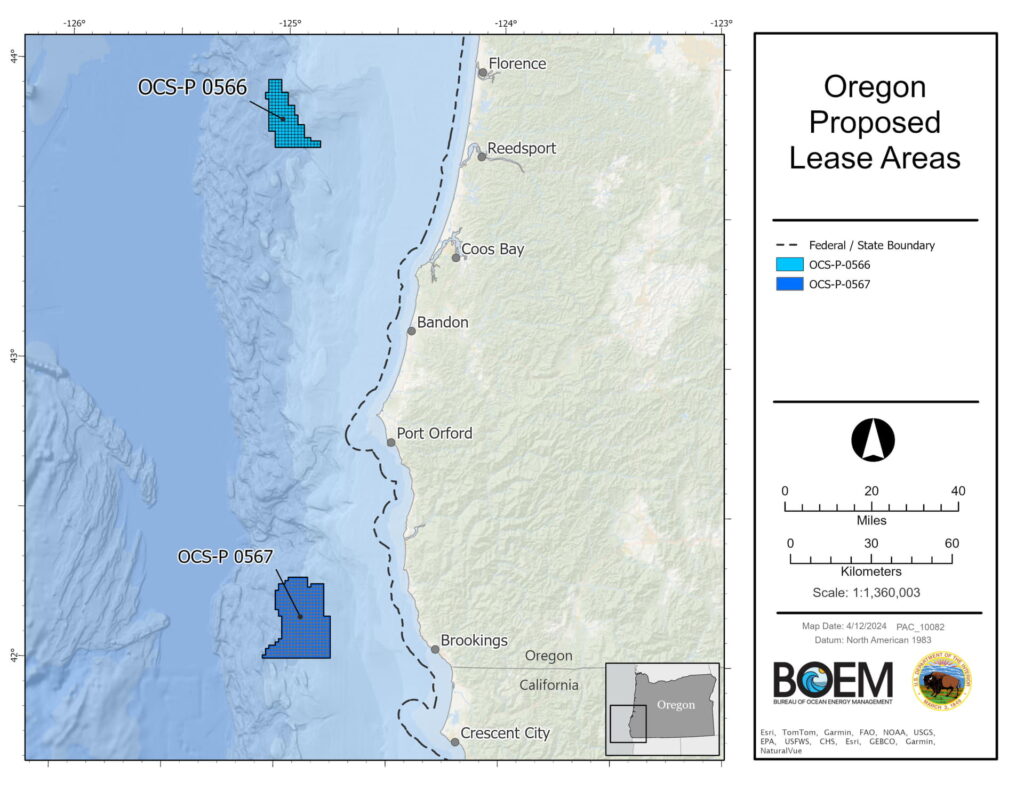The US Bureau of Ocean Energy Management (BOEM) has postponed the lease sale for offshore wind areas in federal waters off Oregon. The US federal agency announced on 27 September that the auction was delayed due to insufficient bidder interest.
BOEM issued the Final Sale Notice (FSN) for two lease areas offshore Oregon on 29 August, setting the auction date for 15 October and identifying five companies as eligible bidders: Avangrid Renewables, BlueFloat Energy Oregon, OW North America Ventures, US Mainstream Renewable Power, and South Coast Energy Waters I.
However, since the FSN was issued, BOEM received bidding interest from only one of the five qualified companies and has now decided to postpone the Oregon auction.
“In determining a future opportunity for a potential lease sale, BOEM will continue to collaborate with representatives from federal, state and local agencies and Tribal governments, to coordinate on potential leasing and support ongoing stakeholder engagement processes on broader offshore wind considerations, such as the state-led development of a strategic roadmap for offshore wind,” the federal agency said on 27 September.
The two Wind Energy Areas (WEAs) that were scheduled for lease sale next month, the Coos Bay WEA and the Brookings WEA, have the potential to accommodate up to 3.1 GW of installed offshore wind capacity.
Areas in the federal waters off Oregon are deemed most suitable for floating wind technology.
“Oceantic Network supports BOEM’s decision today to advance offshore wind energy responsibly in Oregon. The West Coast is an emerging market that will require new technologies. Regional supply chain coordination is key to a successful rollout of offshore wind energy, and we are seeing the region advance: California has set new offtake goals and allocated funding for ports and transmission, and with Gov. Inslee’s support, Washington State Maritime Blue formed the Blue Wind Supply Chain Collaborative to promote local manufacturing for offshore wind components,” Sam Salustro, vice president of strategic communication at Oceantic Network, said in a statement following BOEM’s announcement that the Oregon auction was being postponed.
“Oceantic is confident that Oregon will soon join other states in the development of offshore wind projects as conversations continue and supply chain opportunities materialize.”

ADVERTISE ON OFFSHOREWIND.BIZ
Get in front of your target audience in one move! OffshoreWIND.biz is read by thousands of offshore wind professionals daily.
Follow offshoreWIND.biz on:
Original Story at www.offshorewind.biz
